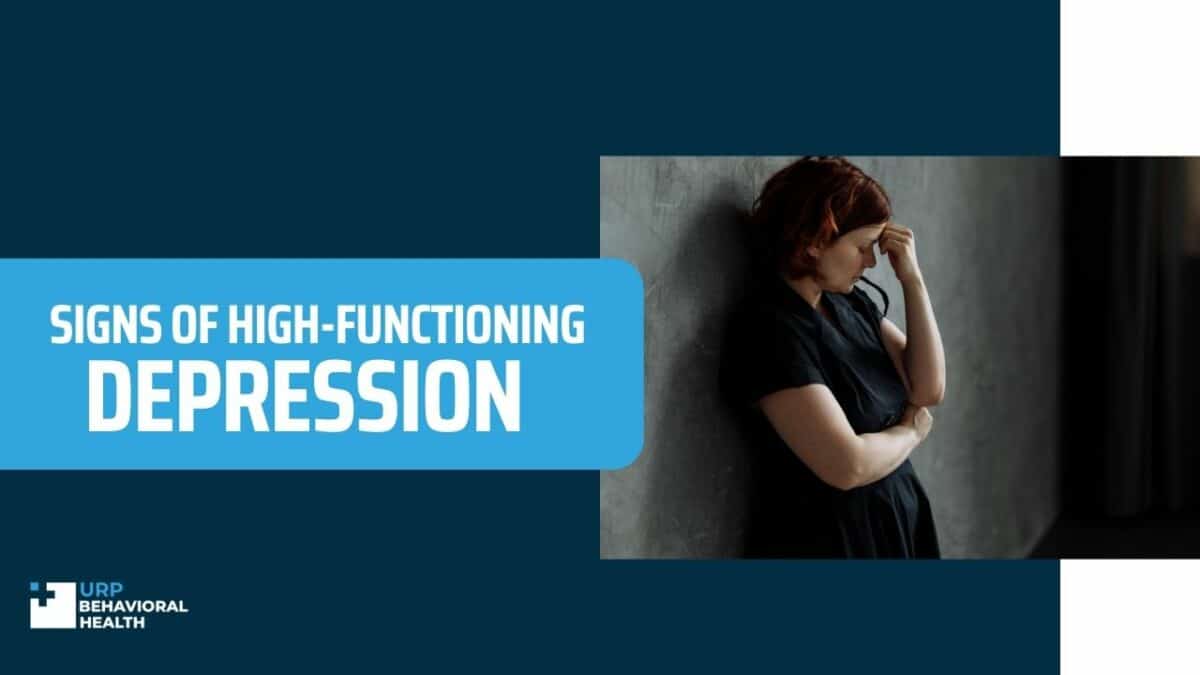
Signs of High-Functioning Depression
Do you feel like you have a low mood on most days? Perhaps you can manage to get stuff done, but it takes much more effort to do so. Or maybe you can go to work and maintain social relationships but would rather be alone. Depending on whether you have other symptoms, it’s possible that you’re struggling with high-functioning depression.
The term is used to describe any person who has symptoms of a depressive disorder but is able to function in some areas of their life. Because they can continue functioning in key areas, it’s possible that they have a persistent depressive disorder. Let’s discuss the symptoms of high-functioning depression, treatment options, and why it’s so difficult to spot.
What is High-Functioning Depression?
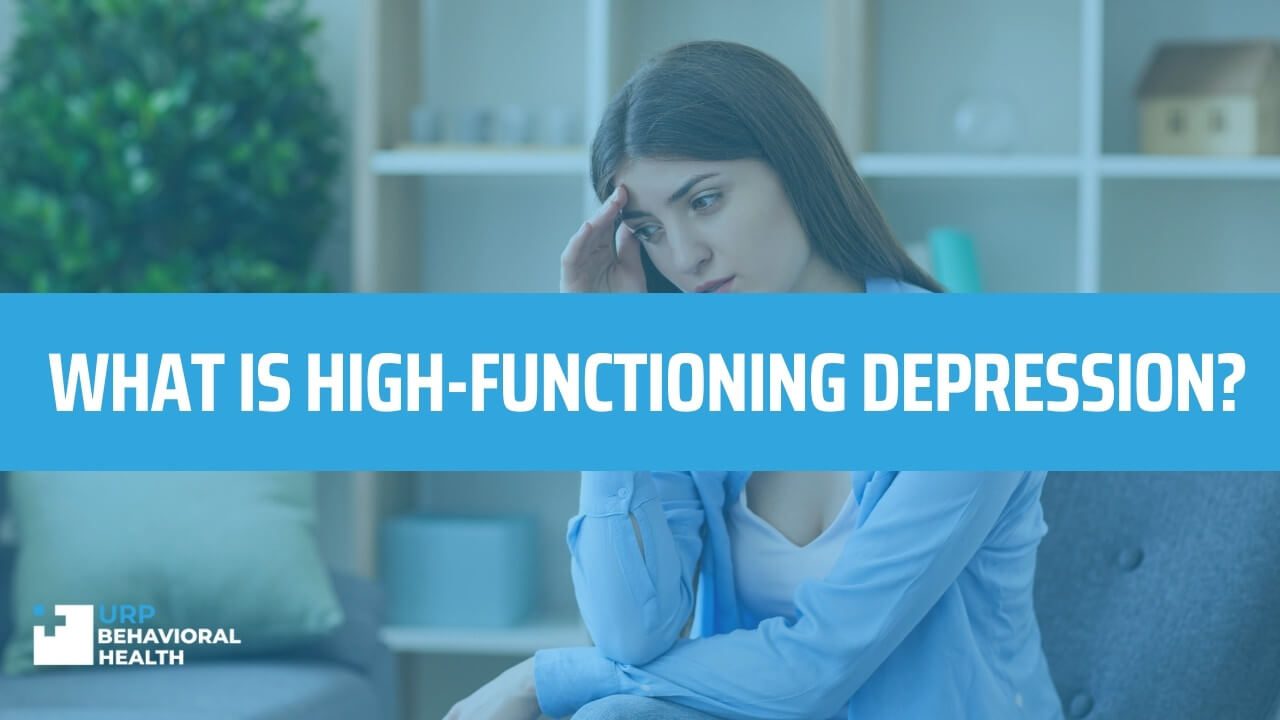
Most mental disorders are severe enough to affect your ability to function in areas like personal relationships, everyday activities, and work. For many disorders, impairment in key areas of functioning is a part of the diagnostic criteria. Impairment can look like the inability to hold a job, performing poorly at school, and avoiding social interactions, among others.
But in some cases, the disorder is less severe, so even if you experience symptoms, you continue to function normally most of the time. High-functioning depression is a term used to describe when you have some depressive symptoms but continue functioning at home, work, and in social relationships.
Symptoms of High-Functioning Depression
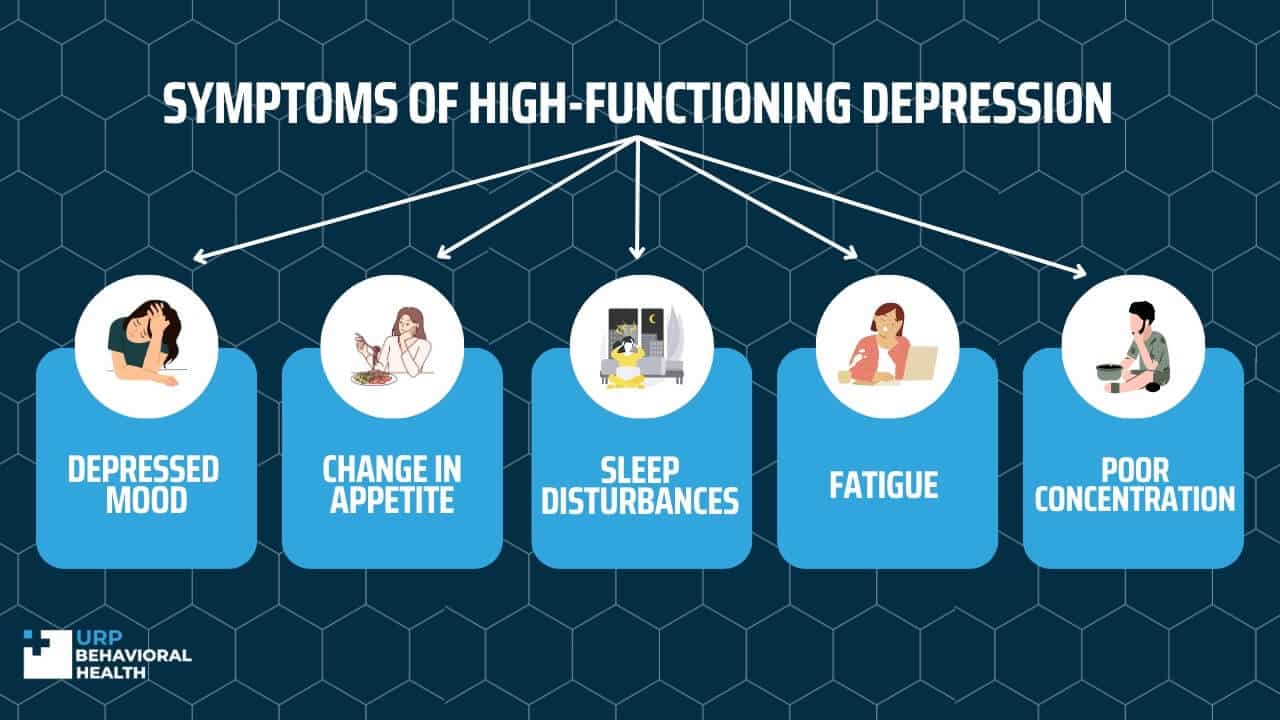
When you seek treatment, mental health specialists at a treatment center like URP Behavioral Health will look for specific signs. It shares many symptoms with major depression, such as:
Depressed Mood
You may experience low mood and feel like you’re ‘down in the dumps’ most of the time. Your depressed mood may be a part of your day-to-day experience, so it may feel like you’ve ‘always been this way.’
Change in Appetite
You may experience an increase or decrease in appetite. In the case of the latter, you may feel like you have to force yourself to eat. In contrast, increased appetite is followed by craving specific foods such as carbohydrates. If your change in appetite is severe, you may experience significant weight gain or loss.
We’ll help you understand your options and guide you toward care.
Sleep Disturbances
You may experience sleep disturbances in the form of excessive sleeping or having trouble sleeping. When you present with hypersomnia or oversleeping, it could be in the form of prolonged sleep episodes at night or excessive sleeping during the day. If you experience insomnia, it could be middle, initial, or terminal insomnia.
Fatigue
Many people with high-functioning depression report feeling fatigued despite no physical exertion. As a result, the smallest of tasks require much more effort to complete. In occupational settings, you may report lower efficiency and reduced productivity.
Poor Concentration
You may report poor decision-making abilities, low concentration, and an inability to think clearly. It may feel like you’re distracted easily or have trouble remembering things. In most cases, these symptoms subside after receiving treatment.
These are some of the symptoms that persistent depressive disorder shares with major depression. In addition to the above-mentioned symptoms, you may also experience feelings of hopelessness and low self-esteem.
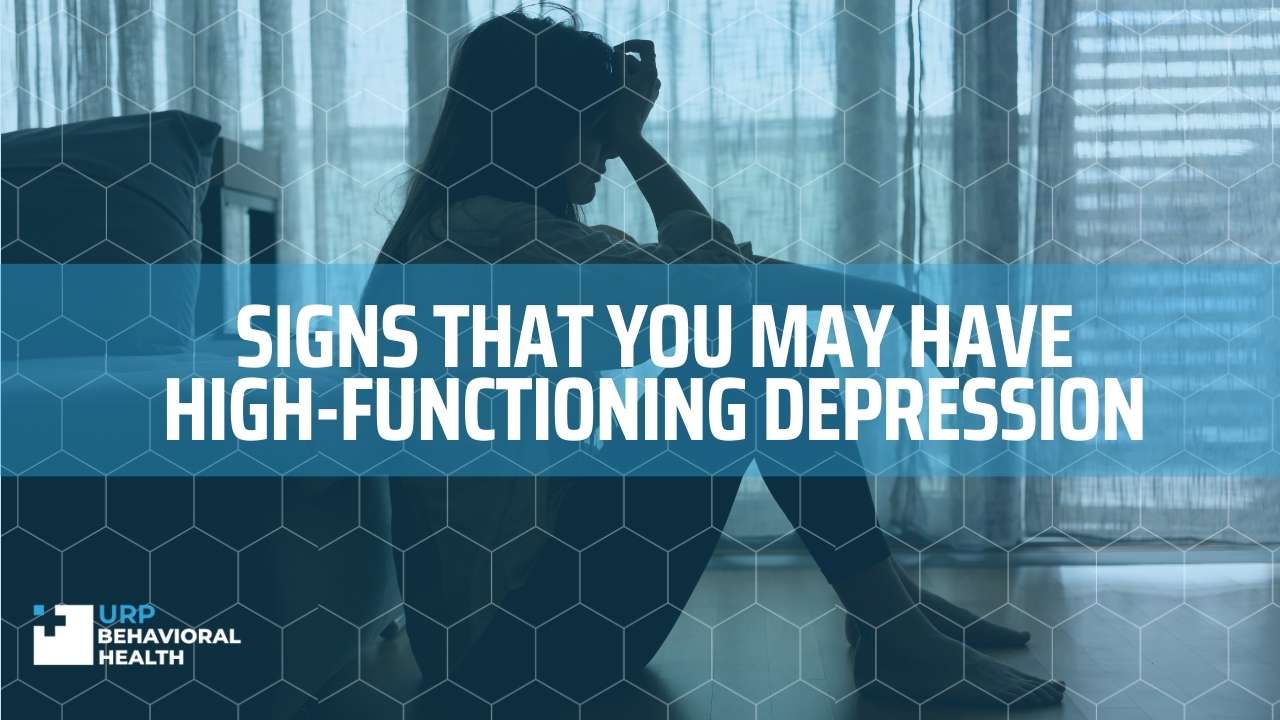
7 Signs of High-Functioning Depression
Many people may not realize that they struggle with high-functioning depression. You may assume that because you can hold down a job and maintain social relationships, you don’t need treatment. However, the following signs can indicate a need for professional help:
- Your peers may call you a downer and say that you appear gloomy most of the time.
- You feel fatigued, even when you get enough sleep. As a result, you have very little energy to dedicate to tasks.
- You manage to do tasks you’re supposed to, like go to work and take care of basic hygiene, but it requires much more effort.
- You force yourself to engage in social interactions but would rather withdraw and isolate yourself.
- You don’t feel good about yourself, even when someone gives you a compliment. You may look for different ways to criticize yourself.
- You no longer find joy in activities you once loved.
- You often experience feelings of guilt and constant worry.
If you feel like you experience these signs and persistent low mood, then it’s time to seek professional treatment.
Why High-Functioning Depression is Difficult to Spot
It can be difficult to spot when you or a loved one is struggling with high-functioning depression. This is due to stereotypes that people with depression can’t manage to get out of bed, let alone get dressed and go to work.
But with high-functioning depression, you don’t ‘look’ depressed, so you’re unable to spot feelings of low self-esteem, hopelessness, and inadequacy as signs of depression. Not to mention, the term high-functioning implies that because you can function, there’s no need for treatment.
How to Treat High-Functioning Depression
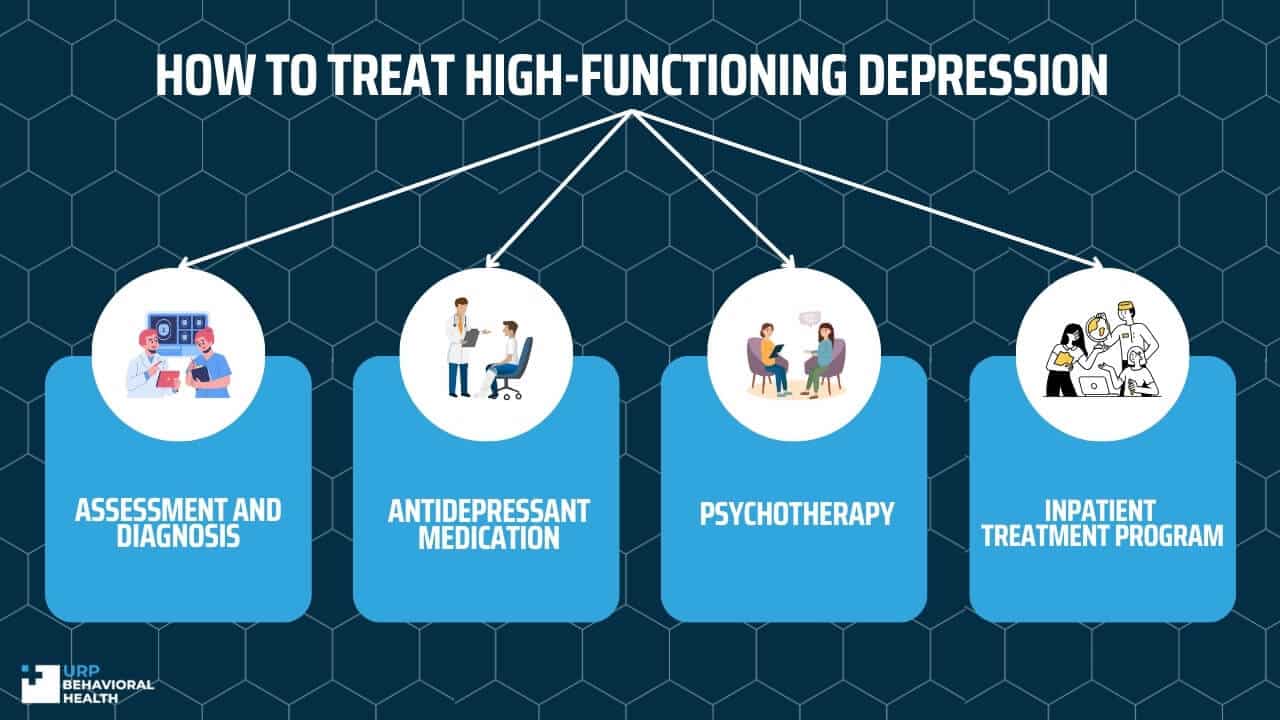
If you’re dealing with high-functioning depression and want to seek treatment, there are multiple approaches you can take. Treatment usually involves medication, psychotherapy, or a combination of both. Regardless of the treatment approach, you’ll need to undergo an assessment to get a diagnosis first.
Assessment and Diagnosis
At a mental health treatment center, you’ll have to go through a complete medical assessment by a physician. They’ll look at your medical history and require a series of tests to determine that your symptoms aren’t the result of another medical condition or substance abuse.
Then, you’ll undergo a psychiatric evaluation to determine your symptoms. You’ll have to take a depression scale questionnaire to find out the intensity of symptoms. Lastly, your psychiatrist will compare your symptoms against the criteria in the APA’s DSM-5.
Compared to major depression episodes, persistent depression is constant. So, for a diagnosis of persistent depressive disorder, you need to experience low mood for most of the day, every day, for at least 2 years. Additionally, you need to experience two other symptoms from the following:
- feelings of hopelessness
- poor concentration
- changes in appetite
- Low self-esteem
- Fatigue
- insomnia or hypersomnia
Our team will verify your insurance and design a plan tailored to your needs.
Antidepressant Medication
Researchers attribute the development of persistent depressive disorder to low serotonin levels, which influence feelings of well-being. To stabilize your brain’s levels of serotonin, you’ll be prescribed antidepressant medication.
The most common ones include SSRIs, selective serotonin reuptake inhibitors, and SNRIs, which are serotonin-norepinephrine reuptake inhibitors. Your psychiatrist may prescribe medication to alleviate your symptoms, but it will take some time before you feel a difference. And because people respond to antidepressants differently, you may have to try a few different types of formulations before you find one that suits you.
Psychotherapy
Psychotherapy can take many different approaches, such as a psychodynamic, cognitive behavioral, or even a holistic approach. Today, most mental health professionals take a holistic approach, which involves applying principles of different theories depending on your symptoms. Some of the most common psychotherapy models used include:
- Cognitive Behavioral Therapy (CBT): This is the most popular evidence-based therapy because of its proven efficacy and objectivity. It involves understanding that how you think about a certain event will affect how you respond to it. Your therapist will work with you to practice cognitive restructuring. This is when you spot unhelpful thoughts and replace them with more realistic ones.
- Family Therapy: When you’re struggling with high-functioning depression, family members may not feel like you have a problem. Having them attend a family therapy session gives you the opportunity to psychoeducate them. Here, your therapist will explain your condition and guide them on how they can provide you with a supportive environment at home.
- Group Therapy: A group setting gives you the opportunity to interact with people who experience similar issues as you. It provides an environment where you can feel inspired by others’ recovery journey, learn new coping strategies from your peers, and practice what you’ve learned.
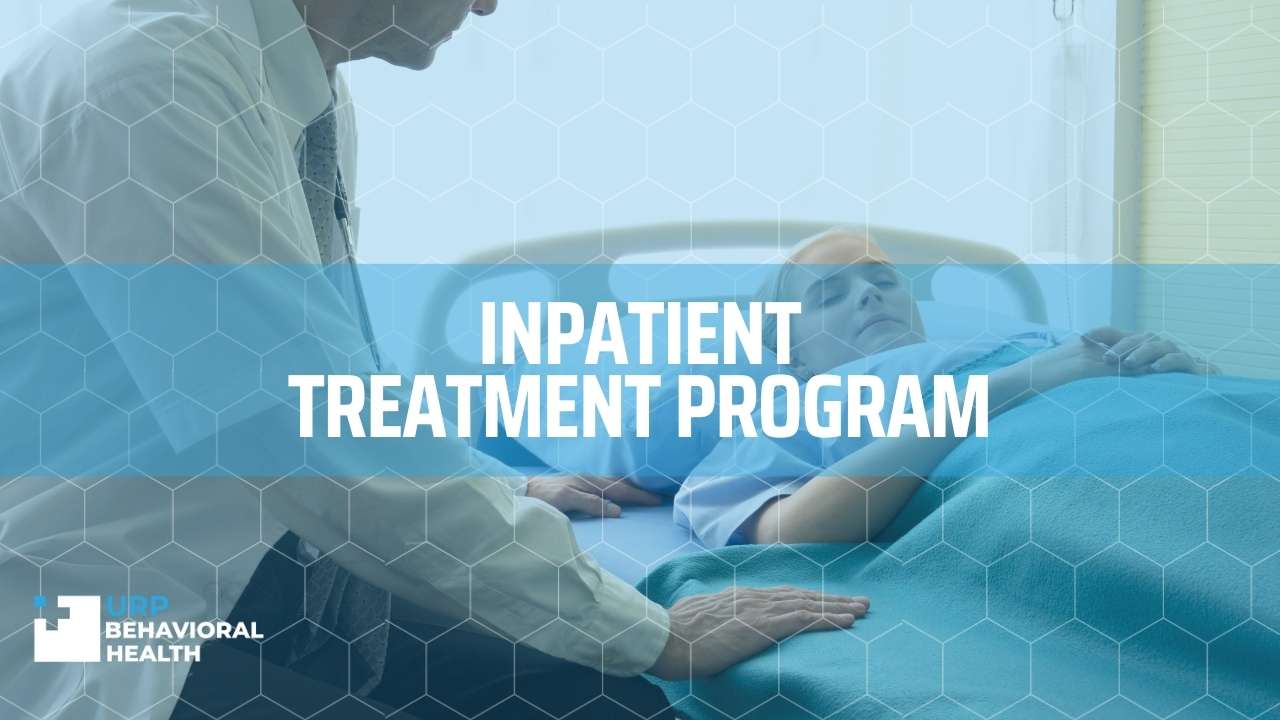
Inpatient Treatment Program
Although people with high-functioning depression don’t experience significant impairment in daily, occupational, or social functioning, there are significant benefits of inpatient treatment. In fact, one study on the effectiveness of inpatient treatment programs for chronic depression shows that the effects of inpatient treatment remain long after being discharged. The study also found that it was much more effective than participants receiving treatment as usual in an outpatient setting.
This major difference could be attributed to the fact that residential treatment programs provide you with a secure environment. Such a setting is conducive to healing because it gives you the space and time needed to focus on recovery.
A residential treatment center like URP Behavioral Health combines evidence-based treatments, such as pharmacotherapy, psychotherapy, and family therapy, with holistic approaches. This involves the implementation of an exercise routine, outdoor activities, meditation, balanced nutrition, and animal-assisted therapy. By targeting your mind, body, and spirit, holistic therapy improves your overall wellness and helps alleviate your feelings of depression.
Contact our admissions team now to begin your path toward a brighter future.
Conclusion
High-functioning can be a difficult condition to live with, especially when you don’t know that what you’re experiencing is a form of depression. Though the symptoms are quite similar to major depression, the fact that you can continue functioning at home, work, and in relationships may prevent you from seeking professional help. With the right treatment interventions, such as antidepressant medication, psychotherapy, and perhaps even inpatient treatment, your symptoms can go into remission and you’ll recover.
















